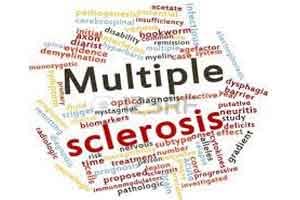- Home
- Editorial
- News
- Practice Guidelines
- Anesthesiology Guidelines
- Cancer Guidelines
- Cardiac Sciences Guidelines
- Critical Care Guidelines
- Dentistry Guidelines
- Dermatology Guidelines
- Diabetes and Endo Guidelines
- Diagnostics Guidelines
- ENT Guidelines
- Featured Practice Guidelines
- Gastroenterology Guidelines
- Geriatrics Guidelines
- Medicine Guidelines
- Nephrology Guidelines
- Neurosciences Guidelines
- Obs and Gynae Guidelines
- Ophthalmology Guidelines
- Orthopaedics Guidelines
- Paediatrics Guidelines
- Psychiatry Guidelines
- Pulmonology Guidelines
- Radiology Guidelines
- Surgery Guidelines
- Urology Guidelines
Computational simulations suggest multiple sclerosis is a single disease

New research supports the idea that multiple sclerosis (MS), which has widely varying symptoms and progression in different patients, is nonetheless a single disease with common underlying mechanisms. The findings are published in PLOS Computational Biology.
MS is an autoimmune disease in which the immune system disrupts the function of nerve cells in the spinal cord and brain. This can cause a variety of problems, including blurred vision, memory problems, paralysis, and more. Symptoms and patterns of disease progression over time can vary between patients, leading to suggestions that MS may actually consist of two or more different diseases.
Ekaterina Kotelnikova of the IDIBAPS -- University of Barcelona, Spain, and colleagues hypothesized that MS is a single disease with multiple results in patients, all driven by the same underlying biological mechanism: immune system attack of the protective fibers shielding nerve cells and loss of the axons used by nerve cells to communicate with each other.
To explore this hypothesis, the researchers developed a mathematical model of MS based on experimental data from 66 patients who had been followed for up to 20 years. Using the model, they were able to perform computational simulations of the different known biological processes involved in the disease.
To test the validity of the model, the scientists ran simulations using data from the second group of 120 MS patients. They found that, by changing the intensity of the underlying biological processes involved in MS at distinct times, they were able to successfully reproduce the variability of disease courses seen in these patients.
These results support the hypothesis that that all the symptoms and disease courses observed in MS patients are produced by the same underlying mechanisms that damage nerve cells over time. This implies that, even though it may follow different patterns, MS will worsen over time for all patients.
"This concept has significant therapeutic implications and will drive the development of new therapies because it implies that MS will produce significant disability if suffered for enough time in all patients," says co-author Dr. Pablo Villoslada, Head of the IDIBAPS research group in Pathogenesis and new treatments in multiple sclerosis and coordinator of the study. "Indeed, preventing relapses, although very important, will be not enough to achieve good control of the disease."
For more details click on the link : Ekaterina Kotelnikova, Narsis A. Kiani, Elena Abad, Elena H. Martinez-Lapiscina, Magi Andorra, Irati Zubizarreta, Irene Pulido-Valdeolivas, Inna Pertsovskaya, Leonidas G. Alexopoulos, Tomas Olsson, Roland Martin, Friedemann Paul, Jesper Tegnér, Jordi Garcia-Ojalvo, Pablo Villoslada. Dynamics and heterogeneity of brain damage in multiple sclerosis. PLOS Computational Biology, 2017; 13 (10): e1005757 DOI: 10.1371/journal.pcbi.1005757

Disclaimer: This site is primarily intended for healthcare professionals. Any content/information on this website does not replace the advice of medical and/or health professionals and should not be construed as medical/diagnostic advice/endorsement or prescription. Use of this site is subject to our terms of use, privacy policy, advertisement policy. © 2020 Minerva Medical Treatment Pvt Ltd